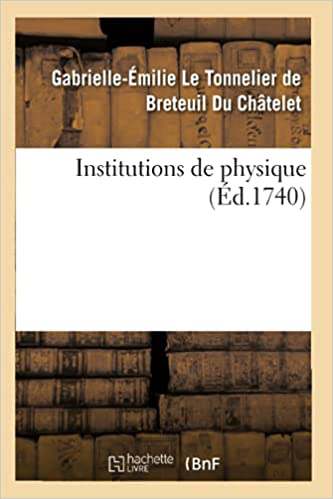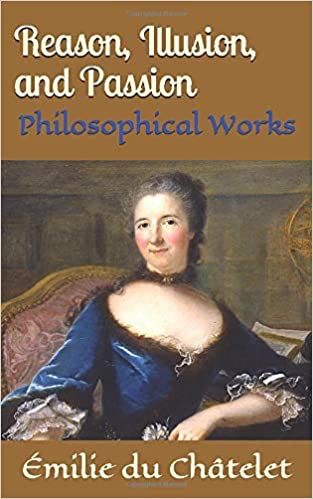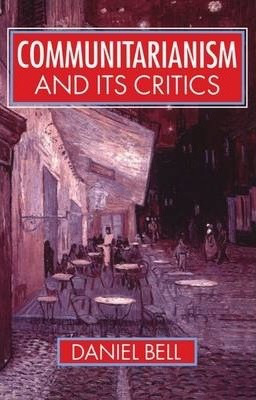Real World Politics

Interview by Richard Marshall


Paul Neiman is interested in political science and philosophy. Here he discusses the ethics of nurses striking, why neither deontology or consequentialism help, justifying healthcare strikes, access to prisoner-patient’s criminal histories, whether we actually need normative theories to have good political theory, Hume's irregularity argument, Plato's Statesman, the construction of a social contract for international business ethics, Camus’s philosophy of rebellion, immoral but authentic acts of violence, events happening at St. Cloud State University and reflections on remote teaching during the pandemic. Plus his answers to a general survey on Philosophical issues.
3:16: What made you become a philosopher?
Paul Neiman: It was never really that intentional. A friend who I used to drive around with and get into all sorts of fun arguments suggested that we take an ethics class together, in part because he was interested, and in part because it would be fun to argue about. Around the same time, I was emerging from being heartbroken and came across a reference to Albert Camus in the movie Glory Daze (Ben Affleck, French Stuart, Alyssa Milano). A group of friends are sitting around after a party that was disappointing to everyone for various relationship-related reasons, and one character says something along the lines of “you know, Camus was right…the best kind of love affair is when right in the middle of the salad days, when you’re still stupid in love with each other, she dies. The love never fades, she never has a chance to betray you, or drag family into it.” This really captured how I was feeling at the time, and so I went to the library and started reading every Camus book they had looking for this reference. I actually didn’t find it until much later (it’s in The Fall ), but was captivated by The Myth of Sisyphus .
After that, I just kept taking philosophy classes until it seemed like I should add a major in philosophy to the political science major I was already pursuing. Graduate school was a way to extend this without worrying about getting a full-time job, and I was lucky enough to be accepted to the PhD program at Marquette University in Milwaukee, which was just north of my undergraduate university, UW-Parkside. I had vaguely planned to move to Milwaukee with some friends anyway, so it worked out.
3:16: As a political philosopher you’ve looked at the ethics of nursing strikes. To begin with, why do you think that neither deontology nor consequentialism have the right focus to help with this sort of issue?
PN: I tend to think that simply applying deontology or consequentialism is not a great way to approach issues in applied ethics. At best, they can highlight some moral concerns we ought to take into consideration; at worst, they leave us with conclusions that seem to ignore some obvious moral problems. In this case, consequentialism leads us doing nothing but weighing the harms and benefits of nurses’ strikes, often in isolation from the factors that cause nurses to go on strike. Deontological ethical theories tend to leave us more confused about how to apply something like Kant’s categorical imperative to dynamic and complex relationships.
3:16: What is it about the healthcare community and competing interests that justifies nurses striking?
PN: I think the main reason is that it is a way to give nurses a voice in the workplace, especially in issues that impact patient care. Hospital administrators and insurance companies, two big drivers of how the healthcare system functions, do not always have the best interests of patients in mind. Insofar as good policy is driven from the ground up, we ought to first and foremost be listening to nurses who see firsthand how patients are impacted. As nurses often chant when they go on strike, “If we’re [nurses] out here, something’s wrong in there!” The argument that nurses are ‘abandoning patients’ seems to me often to be a way to silence nurses, and covers over the impact that the decisions of administrators, insurance companies, as well as political decisions, impact patient care.
3:16: Staying in the healthcare domain, should hospital nurses have access to prisoner-patient’s criminal histories?
PN: No! This information is never going to lead to improved patient care, or better protection of nurses. That can seem counterintuitive to people, including to nurses. It might seem like knowing that a patient has a criminal history of violence, for example, can better enable a nurse to protect themselves. But prisoner-patients in hospitals are often handcuffed to the bed, and always in the presence of a guard. The more detrimental effect of information about a patient’s criminal history is in the bias that it can introduce into patient care.
3:16: It has been argued powerfully by Katrina Forrester that post Rawls, "liberal political philosophers pass ethical judgments on the world by appealing to general moral principles designed to help us make sense of what justice requires of our politics and institutions." But the ethical judgments aren’t widely known nor accepted so political philosophy has become ignored. Do we actually need normative theories to have good political theory. After all, according to Brian Leiter, Marx didn’t have a normative theory. As someone working in this field, how do you respond to this?
PN: I feel more and more attracted to looking at real world problems of justice, starting from the ground up. If, for example, we want to understand what just immigration policy looks like, then we’re better off beginning from people’s real, lived experiences of immigration or of living in communities to which people are immigrating, rather than more abstract concerns about freedom of movement, or by trying to determine what liberalism political theory requires, or trying to determine what ethical principles liberal theory is grounded in.
3:16: Do Hume’s ‘irregular arguments’ – ‘arguments whose veracity is founded on the force and vivacity with which they strike the mind’- as used in his Dialogues Concerning Natural Religion represent Hume’s opinions? And do you think that irreguar arguments are legitimate gadgets for thinking in philosophy?
PN: I really like the way that Hume has Cleanthes keep coming back to these ‘irregular arguments’ at the end of many of the parts of the Dialogues. Ultimately, I think there is a case to be made that Hume himself finds at least some value in irregular arguments to place a restraint on skepticism. I don’t need an argument to prove that the laptop in front of me is real; I can rely on the force of the experience itself, and if a theory contravenes that experience, so much worse for the theory. I think where these ‘gadgets for thinking’ get us into trouble is when there is dispute about the force of that experience, and so I would reject the way that Cleanthes uses it to support the argument from design. And so really, I think it is only philosophers who need ‘irregular arguments’ to keep them grounded; everyone else can just use common sense.
3:16: You have argued that Plato in the Statesman is not looking for the best constitution but rather the best constitution that can be put into practice. If so, isn’t this running against what seems a competing thought writ large in Plato, that we should be obedient to absolute, unchangeable laws? Can you explain this apparent conflict in Plato, and has this pragmatism relevance today for political philosophy?
PN: I think of the Statesman as a later dialogue that is more pragmatic than the Republic , and so more in the mold of the Laws . This seems to me a lesson for all political philosophy – regardless of how well a political theory is justified, it is pointless if it cannot be put into practice, or cannot be aimed for as an ideal to make revisions to the current system. If we read the Republic as such an ideal, then I think it makes sense to see Plato moving on in his later works to something that might actually be adopted.
3:16: You’ve looked at the construction of a social contract for international business ethics. Before looking at your ideas, what are the challenges facing bodies wanting to set up such a contract?
PN: I think the biggest challenge is the corporate structure that separates the people who make the money from what the company actually does, and how it actually operates. When the focus for shareholders, big or small, lies in looking at share prices or dividends, then it becomes easy to abstract away from how that wealth is actually generated. I also think we have, at least in the United States, internalized the idea that company profits are sacrosanct. We see this all the time in companies’ reticence or outright refusal to increase wages or improve working conditions, or pay more in taxes. Companies have convinced us that any such action will ultimately make consumers and workers worse off, because companies will have no choice but to raise prices on consumer goods and/or reduce wages. The idea that they could accept less in profit is simply not considered, by them or the general public.
3:16: So how should we go about setting up a social contract for business? What are the key components – and as raised earlier – why should anyone take notice of moral principles embedded in such a contract?
PN: I think the starting point has to be defining the ‘commonly shared presumptions’ for the agreement. This is something that Rawls to inform the construction of the original position. In Rawls’ case, those commonly shared presumptions are drawn from the essentials of a constitutional democracy. In setting up a social contract for international business ethics, we must draw from the essential facts about globalization, and the freedom and equality of the parties, in this case a representative for a company and a local community. The reason to take notice of the moral principles generated by such a contract, then, is because they start from moral presumptions about agreements that we already share, and that the moral principles, properly refined, reflection our considered moral convictions.

3:16: You’ve looked at Camus’s philosophy of rebellion taken from his ‘The Rebel’ and ‘The Just Assassins’. First, can you summarise what you take to be the issues that Camus is facing, and how he approaches them?
PN: I think what Camus is ultimately concerned about are the people who committed murder as part of the French Resistance to the German occupation during World War II. Their actions certainly seemed necessary to resist the German occupation, and yet, Camus strongly believed in the value of human life, and worried about what type of society could be borne from a rebellion grounded in murder.
3:16: So is an act of violence taken by a rebel, no matter how authentic it is, always immoral?
PN: That is the position I believe that Camus is arguing for in The Rebel and “The Just Assassins.” Political violence is never morally justified, but it is sometimes necessary. What comes out clearly in “The Just Assassins” is that the necessity of an action to stand up for important values does not provide moral justification, the end does not justify the means. What is left is to respect the authenticity of the rebel, who both commits and rejects political violence, and so whose integrity provides a restraint on what actions they are willing to commit or condone.
3:16: So what criteria are developed from this approach for immoral but authentic acts of violence and where does that leave us when assessing suicide bomb attacks on civilians?
PN: Suicide bomb attacks are always immoral. But from the perspective of the rebel, they may be authentic. Authenticity can place a restraint on a person’s willingness to use violence by rejecting any moral justification for the act. To be authentic, one must acknowledge the wrongness of the act, reject justifications grounded in necessity, and this means rejecting any glorification, praise or reward for having committed the act.
3:16: Philosophy teaching at your own institution is under attack from the university itself. What’s going on? Apart from your own livelihood, what do you see as being at stake in the events happening at St. Cloud State University?
PN: I think the bigger issue is how universities believe that they need to focus on specific fields – nursing, business, STEM – in order to produce workers, and, increasingly, in order to attract private donations. The liberal arts, including philosophy, seems to be relegated to general education or to providing ‘soft skills.’ From an administrative perspective, then, disciplines like philosophy seem like an easy cut. They assume that the general education credits that sustain many philosophy departments can simply be absorbed by other disciplines. With more and more students receiving general education credits while in high school, or at community colleges, there seems to be less of a ‘need’ for philosophy to provide general education.
The irony is that philosophy majors do very well on the job market. I think we have this attitude, both in society and within philosophy departments, that a philosophy degree is good for getting into law school or graduate programs, but that’s it. In fact, our philosophy graduates apply for and get the same jobs that students in business programs seek. Too many people, and too many philosophy professors, cannot give a detailed answer about the types of jobs philosophy majors should apply for. Of course, people should study philosophy for its own sake, but that doesn’t mean we should be blind to the realities of people’s lives after graduation.
3:16: Another issue for universities during the pandemic is the need to teach remotely. How have you found it?
PN: When the pandemic first hit during the Spring 2020 semester, many instructors shifted their in-person classes to virtual platforms like Zoom or Teams. There seemed to be a sense, for both instructors and students, of figuring it out well enough to get through the semester. Unfortunately, I think this experience has made many instructors, and some institutions, assume that virtual teaching was a terrible experience for all involved. For instructors who spend the majority of their class periods lecturing at students, virtual teaching probably is terrible. But then lecturing at students in-person is also an ineffective teaching strategy. Students can find all sorts of decent and good philosophy lectures on youtube. They don't need to pay money to sit in a room, or sit on Zoom, to listen to one. Continual use of this type of ineffective teaching strategy just furthers the notion that education is all about the credential, putting one's time in, in order to receive a piece of paper an employer will accept as a ticket towards a job.
There are a lot of effective teaching strategies that we can use for virtual instruction that engage students in active learning. For philosophy, in particular, virtual instruction seems particularly effective for students to engage in group and class textual analysis and interpretation. Of course there are drawbacks, especially for students who lack the technology or dedicated space to engage in virtual classes, though these can be mitigated by universities, to some extent. But there are also upsides, such as fewer students missing class due to illness, car troubles, needing to catch a bus to get to campus on time, conflicts with child care, and so on. I've now spent the 2020-2021 academic year teaching virtually, and will be doing so at least for Fall 2021, and I hope this will be a format that universities add to the course options that students can choose from.
3:16: As an ocassional feature I’m running a survey to see where interviewees stand on various philosophical disputes. Here are Paul's answers:
a. A priori knowledge: yes or no? Not Sure
b. Abstract objects: Platonism or nominalism? Platonism. Metaphysics is not my thing, but Plato is fun.
c. Aesthetic value: objective or subjective? Subjective. But aesthetics is not my thing.
d. Analytic-synthetic distinction: yes or no? Yes.
e. Epistemic justification: internalism or externalism? No idea.
f. External world: idealism, skepticism, or non-skeptical realism? Non-skeptical realism.
g. Free will: compatibilism, libertarianism, or no free will? Free will.
h. God: theism or atheism? Atheism.
i. Knowledge claims: contextualism, relativism, or invariantism? Contextualism?
j. Knowledge: empiricism or rationalism? Empiricism
k. Laws of nature: Humean or non-Humean? Non-Humean
l. Logic: classical or non-classical?Meh.
m. Mental content: internalism or externalism? No idea.
n. Meta-ethics: moral realism or moral anti-realism? Moral realism.
o. Metaphilosophy: naturalism or non-naturalism? Probably non-naturalism.
p. Mind: physicalism or non-physicalism? Physicalism.
q. Moral judgment: cognitivism or non-cognitivism? Cognitivism sounds good.
r. Moral motivation: internalism or externalism? Can I say both?s. Newcomb's problem: one box or two boxes? ?
t. Normative ethics: deontology, consequentialism, or virtue ethics? Virtue ethics
u.Perceptual experience: disjunctivism, qualia theory, ?
v. representationalism, or sense-datum theory? ?
w. Personal identity: biological view, psychological view, or further-fact view? Psychological view
x. Politics: communitarianism, egalitarianism, or libertarianism? Egalitarianism, but communitarianism has a lot going for it. I’ve been working on a concept of inclusive communitarianism, which focuses on the nature of home as something that shapes our personal identity and ability to flourish, but which is adaptable, rather than fixed.
y. Proper names: Fregean or Millian? ?
z. Science: scientific realism or scientific anti-realism? Realism, probably?
Ai. Teletransporter (new matter): survival or death? Death
Aii. Time: A-theory or B-theory? ?
Aiii Trolley problem (five straight ahead, one on side track, turn requires switching, what ought one do?): switch or don't switch? No trolley problems.
Aiv. Truth: correspondence, deflationary, or epistemic? ?
Av. Zombies: inconceivable, conceivable but not metaphysically possible, or metaphysically possible? ?
3:16: And finally, are there five books you can recommend that will take us further into your philosophical world?
PN: 
Albert Camus, The Myth of Sisyphus

Charles Mills, The Racial Contract

Emilie du Châtelet, Foundations of Physics


Carrie Jenkins, What Love Is and What It Could Be

Daniel Bell, Communitarianism and Its Critics (but really only Act III)

ABOUT THE INTERVIEWER
Richard Marshall is biding his time.
Buy his second book here or his first book here to keep him biding!
End Time series: the themes
Huw Price's Flickering Shadows series.
Steven DeLay's Finding meaning series
NEW: Joseph Mitterer's The Beyond of Philosophy serialised